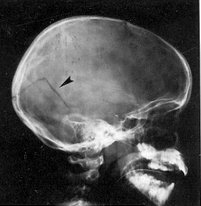Head injuries can have a long-term impact on a person’s memories, cognitive function, and personality. In some cases, people who have sustained a traumatic head injury need to re-learn speech or need to learn to adjust to life with short-term memory loss. New research about Chronic Traumatic Encephalopathy, though, suggests that the effects of head injuries may be even more wide-spread than previously thought.
When you sustain a head injury, it can affect many areas of your life, including your ability to return to your job, earn an income, and care for yourself. Getting fair compensation, if you qualify, is crucial to getting the medical help, wage loss support, and personal support you need to lead a quality life. To find out whether you may qualify for compensation, contact Flaxman Law Group today to speak with a head injury claims lawyer in our South Florida or Colorado offices about your potential claim.
What is Chronic Traumatic Encephalopathy?
Chronic Traumatic Encephalopathy (CTE) is an illness that has traditionally affected people who have sustained serious and repeated head injuries. In the past, athletes, especially of high-contact sports like boxing or football, have been diagnosed with CTE. Now, there is new research showing that veterans who have seen active duty also have an elevated risk of CTE.
Researchers have found that when a person sustains repeat head trauma through blunt force trauma or even exposure to explosives, as is the case for veterans, they suffer long-term consequences. The risk seems to come from repeated injuries, especially if a new injury happens before a previous head injury can fully heal.
Over time, CTE can cause psychiatric symptoms. It can cause a patient’s personality to change and can even lead to violence or suicidal thoughts. It can make it hard to focus, too. In some cases, CTE can affect memory, cognitive function, and even motor control. It has been associated with an increased risk of dementia later in life, too.
These symptoms can affect a person’s ability to get and hold onto a job. They can also impact relationships and quality of life.
CTE Challenges
The challenge is recognizing and treating the illness. Right now, researchers can only accurately diagnose a patient with CTE after the patient has passed on and samples of brain tissue can be examined.
Since understanding of CTE is still being developed and since getting a diagnosis is do difficult, it’s hard for patients to get the support they need. With the new research about veterans, we now know that some jobs may have CTE as an occupational illness risk, for example, but workers’ compensation benefits would not be possible for someone suffering from this illness, because there is no definite way to get diagnosed.
Another challenge with CTE is that it can take years for symptoms to develop. This makes it difficult to trace the symptoms back to work conditions or car accidents or another cause.
What You Can Do
The best way to prevent CTE is by avoiding head injuries. Wear a helmet in contact sports or when biking and use protective equipment if your work poses a danger of head injuries. If you do sustain a head injury, even a seemingly minor one, always get a medical evaluation immediately and wait until the injury has healed completely before returning to riskier activities.
If you have sustained a serious head injury, it’s also important to seek full compensation, if you qualify. You should seek financial recovery for your current costs but also expected future medical costs so you’re prepared for later symptoms.
The father-son attorney team at Flaxman Law Group carefully examines every case at our law firm to make sure we consider the full cost of every injury. We want to make sure you get the financial recovery you need to start rebuilding your life. When you suffer a serious head injury, call Flaxman Law Group at 866-352-9626 to speak to an injury attorney at our South Florida offices or our Colorado offices. Our team is proud to serve clients in both Colorado and Florida.
 Florida Injury Lawyer Blog
Florida Injury Lawyer Blog


